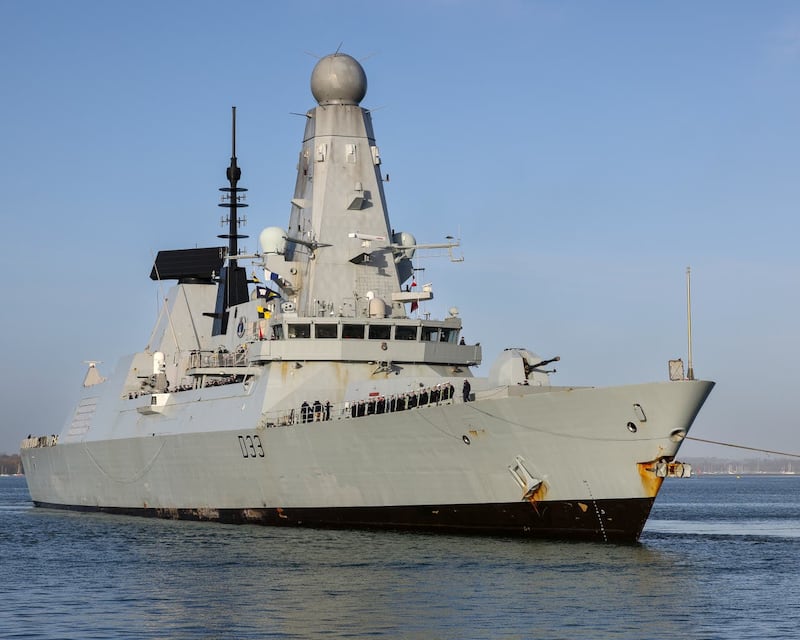Royal Navy destroyer HMS Dauntless has returned to its home port after its crew seized more than £200m of drugs during a hurricane season deployment to the Caribbean.
The Type 45 destroyer intercepted smugglers on four occasions, helping seize more than 2,000kg of cocaine during a 28,000-nautical mile mission.
The warship returned to its home base of Portsmouth, Hampshire, on Friday having completed its mission to the British Overseas Territories.

As well as the drug raids, sailors from the warship helped clear plastic waste from a turtle nesting site on the Caribbean island of Curacao.
Commander Ben Dorrington, Dauntless’s commanding officer, said: “I am immensely proud of what HMS Dauntless has achieved during this deployment, the first destroyer to complete this task since Dauntless was last in the Caribbean in 2012.
“Our team have worked tirelessly over the last 195 days away across a range of tasks.”
Dauntless’s deployment was the first following the Power Improvement Programme (PIP) engine upgrade of the Type 45 fleet which had suffered power failures leading to some of the class being taken out of service for long periods.

Deputy weapon engineering officer Lieutenant Harry Jukes said: “The additional resilience provided by the third diesel generator gives us increased redundancy in the ship’s electricity supply, meaning more availability of sensors to command capable of tracking contacts in excess of 200 miles.”
Petty officer engineering technician Ryan Waters added: “The PIP has given much greater resilience to the propulsion plant of a Type 45 destroyer, improving availability to the Type 45 fleet which provides essential air and missile defence capability to protect the UK’s aircraft carriers deployed on operations around the world.”








